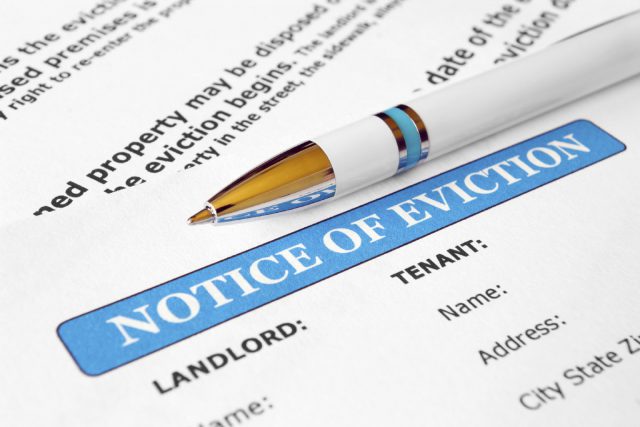Letting agents are taking large amounts for organising work through contractors, and not revealing it to landlords.
Landlords are suffering hidden charges and inflated prices by letting agents that arrange maintenance work and servicing through contractors.
Buy-to-let investors that use a letting agent to manage their property portfolios general pay a monthly cost of about 15% of their rental earnings. This will provide a service of finding tenants, preparing tenancy agreements, and maintaining the property.
Despite this, letting agents are adding charges to this price, of up to 20% of contractors’ bills and requiring a take of up to 60% from contractors for the work they carry out.1 These costs are not properly disclosed to landlords, who will eventually take the bill.
The Happy Tenant Company says that agents regularly add extra to contractors’ bills before invoicing landlords. A mystery shopper exercise recently found that agents are charging landlords six times the price of basic services, for example, gas safety checks, tenant referencing, and deposit protection.1
Lawyer and Chief Executive of The Happy Tenant Company, Jonathan Monjack says that the more serious issue is that agents also take “secret commission” from the contractor.1
Monjack also says that some agents are fixated on finding contractors who agree to high commissions, sometimes up to 60%, in exchange for high volumes of work.1
He states: “We have seen cases where a contractor provided a service for £100 and the agent billed the landlord for £120 and took a 60% cut from the contractor. Essentially the agent received £80 for arranging a job that cost £100. This type of practice drives up contractors’ prices, and landlords are forced to foot the bill.”1
Will Davies runs property maintenance and renovation company aspect.co.uk. He says that this practise is ordinary in the industry, but thinks that some agents are particularly forceful when requesting commissions on maintenance work that they booked for landlords.
Davies says: “We stopped working with one very well known letting agency when the wanted to increase their commission from 15% to 20%.
“Landlords pay their monthly fee and they expect their agent to find contractors with their best interests in mind. In reality, agents are not concerned about quality; they will sign up the contractor who will pay the best commission.”1
Monjack believes that the way agents do not inform landlords of their commissions is “questionably fraudulent.”1 He thinks that agents should work to the best interest of their landlords.
Estate agency in southwest London, Featherstone Leigh, has addressed hidden commissions.

Landlords Hit with Hidden Fees and Commissions
A director at the company, Joanna Hamilton, says that it is prime time for the costs to be wiped out.1
The Trading Standards Institute stated that they are aware of the accusations, however, they have not seen any “hard, written evidence”1 that agents are taking commission from contractors. A spokesperson for the Institute said that they do not know of any convictions or prosecutions within trading standards.
However, landlords who suspect their letting agent of taking commissions should complain to the Property Ombudsman.
It is important to only use an agency registered with a professional organisation, such as the UK Association of Letting Agents or the Association of Residential Letting Agents (ARLA).
These associations provide a code of conduct for their members to follow, however, this does not guarantee that they will not charge additional costs.
Before handing over a property for management to an agency, request a full list of fees and a detailed explanation of these. Also ask if the agent takes any fees or commissions from contractors.
Demand to see original invoices from contractors when work is completed. The typical cost of standard maintenance work, for example gas safety checks, is available online.
You can also insist that the agent uses a tradesperson of your choice if you have a preferred company.
If you believe that you have been overcharged, then you can complain to the agency and request an explanation of all charges. If it is not resolved at this stage, you can go on to complain to the Property Ombudsman.
Christopher Hamer, the Property Ombudsman, says: “While there’s nothing illegal about a letting agent receiving a commission or referral fee for arranging contractor work at a property, you have to ask if it is fair for an agent to charge the landlord a premium on top of the actual cost for contractor work when the landlord is already paying a management fee to the agent.
“The Property Ombudsman’s Lettings Code of Practice clearly states that there must be complete transparency when it comes to fees so we would advise landlords to always ask agents to provide a full breakdown of contractor costs, including any commission arrangement.
“If an agent wants to charge a commission or referral fee to the contractor for introducing the work, this kind of practice is not illegal and quite common in other sectors but the financial arrangement must be disclosed to the landlord so they are fully informed about any financial gain the agent will make.”1
Landlords face various charges when using a letting agent. These depend on the type of property they are letting, and the type of tenant who lives there.
The National Landlords Association (NLA) put together a typical list of costs landlords will pay to an agent. They are based on a £175,000 house, with a monthly rental income of £750.
The NLA state that landlords will pay around 10% of their rental earnings on maintenance, so should budget this into the extra costs.1
There are two types of letting agent fees. The let only service costs around 10% of rental income, and includes the agent finding and vetting the tenant. Full management costs around 15% of annual rent, and this involves the agent taking complete control of communication and organisation with the tenant.
Further costs include: credit checking, £20; referencing, up to £150; deposit protection, £24; Gas Safety Certificate, £50; and landlord insurance, £200 per year.1
It is also worth pointing out that some agents charge a renewal fee when an existing tenant renews their contract.
1 http://www.landlordexpert.co.uk/2014/02/24/landlords-hit-with-hidden-fees-and-commissions/





